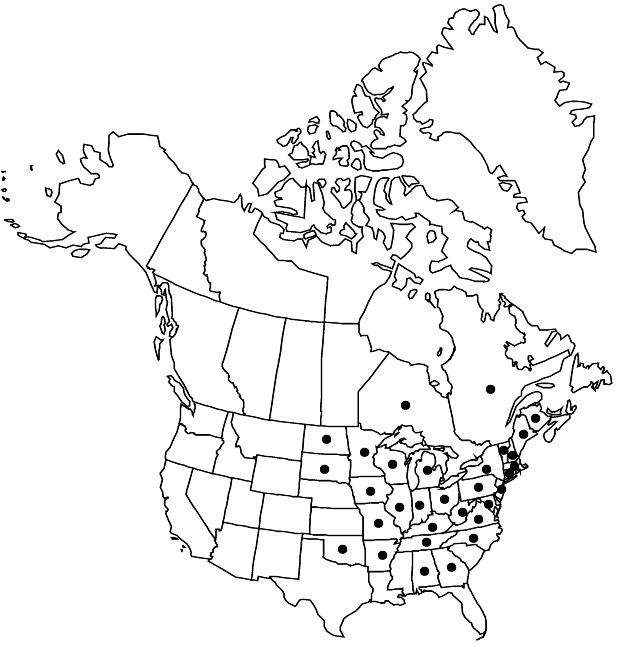Difference between revisions of "Ribes cynosbati"
Sp. Pl. 1: 202. 1753 ,.
FNA>Volume Importer |
imported>Volume Importer |
||
| (2 intermediate revisions by 2 users not shown) | |||
| Line 7: | Line 7: | ||
}} | }} | ||
|common_names=Dogberry;groseillier des chiens | |common_names=Dogberry;groseillier des chiens | ||
| + | |special_status={{Treatment/ID/Special_status | ||
| + | |code=E | ||
| + | |label=Endemic | ||
| + | }} | ||
|basionyms= | |basionyms= | ||
|synonyms={{Treatment/ID/Synonym | |synonyms={{Treatment/ID/Synonym | ||
| Line 56: | Line 60: | ||
|publication title=Sp. Pl. | |publication title=Sp. Pl. | ||
|publication year= | |publication year= | ||
| − | |special status= | + | |special status=Endemic |
| − | |source xml=https:// | + | |source xml=https://bitbucket.org/aafc-mbb/fna-data-curation/src/2e0870ddd59836b60bcf96646a41e87ea5a5943a/coarse_grained_fna_xml/V8/V8_69.xml |
|genus=Ribes | |genus=Ribes | ||
|species=Ribes cynosbati | |species=Ribes cynosbati | ||
Latest revision as of 22:45, 5 November 2020
Plants 0.5–1.5 m. Stems erect to spreading, glabrous or pubescent, glabrescent; spines at nodes absent or 1–3, 5–15 mm; prickles on internodes absent or sparse. Leaves: petiole 1–3 cm, pilose and stipitate-glandular; blade pentangular, 3–5-lobed, cleft (1/3–)1/2–3/4 to midrib, 1.7–5 cm, base truncate to cordate, surfaces glabrate or pubescent abaxially, pilose and sometimes with stipitate-glandular hairs adaxially, lobes deltate or cuneate-deltate, margins with rounded teeth, apex rounded or broadly acute. Inflorescences spreading, solitary flowers or 2(–4)-flowered corymbs, 4–5 cm, axis pilose and stipitate-glandular. Pedicels not jointed (sometimes with abcission layer at bract junction), 5–16 mm, glabrous or pilose and stipitate-glandular; bracts lanceolate to ovate, 1.5–2.5 mm, hairy and glandular on margins. Flowers: hypanthium greenish white, campanulate, 1.8–4 mm, glabrous or scattered-hairy; sepals not overlapping, erect to recurved, greenish, oblong, 1.5–4 mm; petals widely separated, erect, white, obovate, not conspicuously revolute or inrolled, 1–2.5 mm; nectary disc not prominent; stamens as long as or slightly longer than petals; filaments linear, 1–2 mm, glabrous; anthers greenish yellow, oval, 0.4–0.6 mm, apex rounded; ovary setose with eglandular or gland-tipped bristles, sometimes sparsely villous; styles connate to middle or 0.8 mm proximal to stigmas, 4.5–7 mm, villous on proximal 1/2 or glabrous. Berries palatable, greenish to pale red, globose, 7–15 mm, densely bristly or spiny. 2n = 16.
Phenology: Flowering May–Jun.
Habitat: Rich hardwoods and conifer-hardwoods, rocky slopes, boulderfields, heath balds
Elevation: 100-2100 m
Distribution

N.B., Ont., Que., Ala., Ark., Conn., Ga., Ill., Ind., Iowa, Ky., Maine, Md., Mass., Mich., Minn., Mo., N.H., N.J., N.Y., N.C., N.Dak., Ohio, Okla., Pa., S.Dak., Tenn., Vt., Va., W.Va., Wis.
Discussion
Selected References
None.